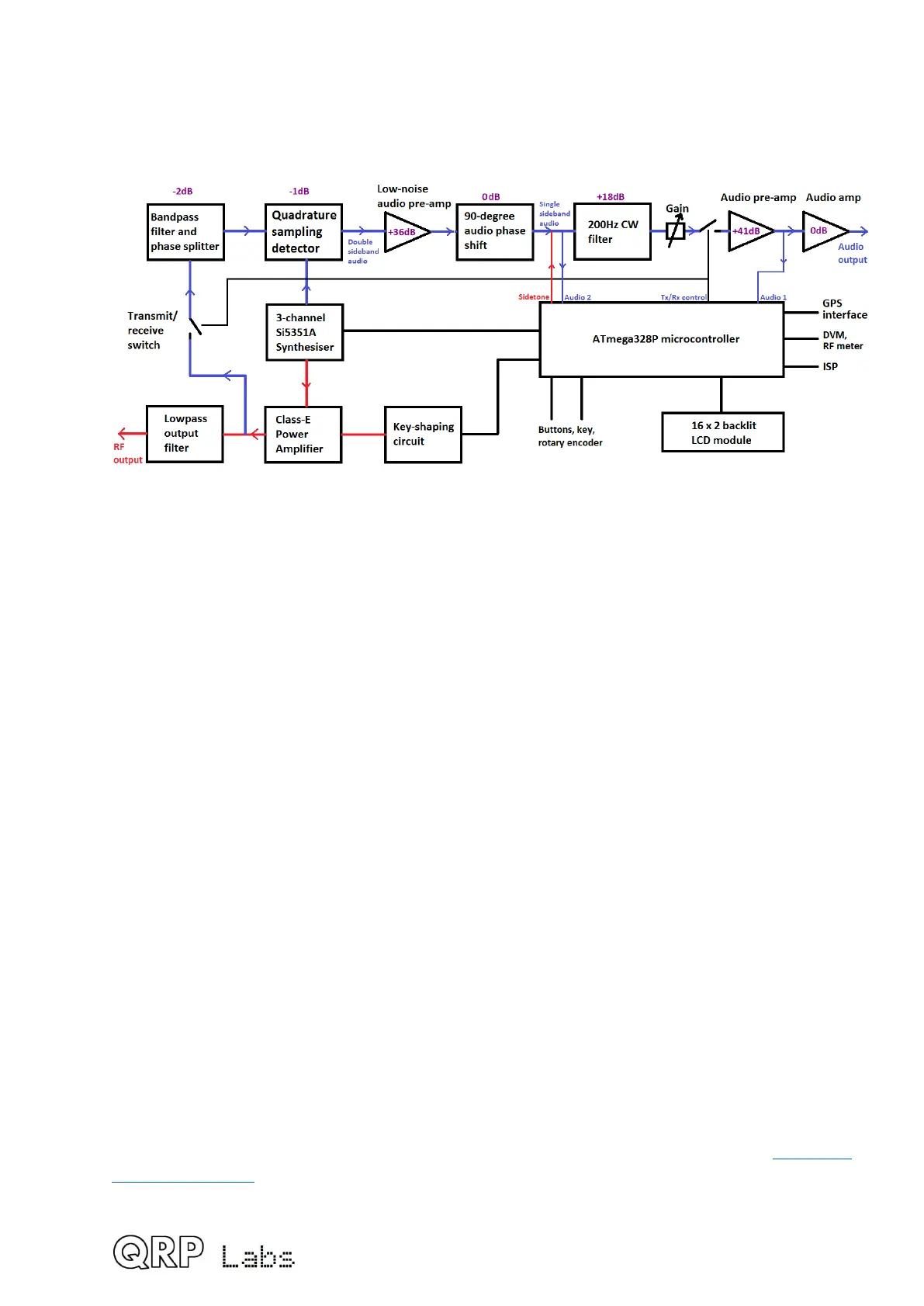4.4 Transmit/Receive switch
Since the receiver is entirely disabled during transmit,
because of the absence of any local oscillator signals to the
Quadrature Sampling Detector, the demands on the
transmit/receive switch are considerably reduced. Now the
circuit does not have to provide the massive amount of
attenuation necessary to prevent the transmitter from
overloading the receive circuits. All it has to do is provide a
reasonable amount of attenuation, enough to stop the 5W
signal (45V peak-peak) from damaging the receiver input
mixer.
The transmit/receive switch is implemented by a single BS170 MOSFET. The source is at
DC ground (via the primary of input transformer T1). The control signal from the
microcontroller switches the MOSFET on or off. Interestingly, capacitor C34 close to the
MOSFET gate is found to be necessary to prevent inductive pickup of the 5W RF from
partially switching on the MOSFET.
The switch wouldn’t provide enough attenuation to mute an operating receiver; but during
transmit, our receiver isn’t operating; all the switch has to do is protect the Quadrature
Sampling Detector from seeing 45V peak-peak which would destroy it.
4.5 Band Pass, Phase Splitter, QSD and pre-amps
Since the band-pass filter, Phase splitter, Quadrature Sampling Detector and pre-amp
circuits are so tied up together, I am going to consider them all together in this section.
This circuit implements an input band-pass filter and double-balanced Quadrature Sampling
Detector with low-noise pre-amps. Yet it does this with a low parts count, and resulting low
complexity and cost. The FST3253 is a dual 1:4 multiplexer which is often seen in QSD
83
